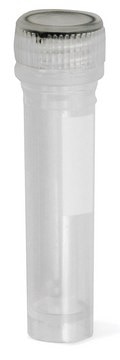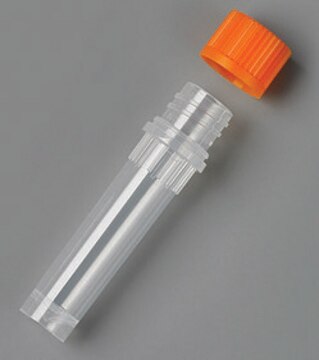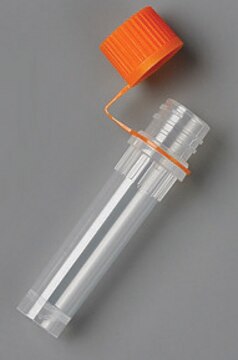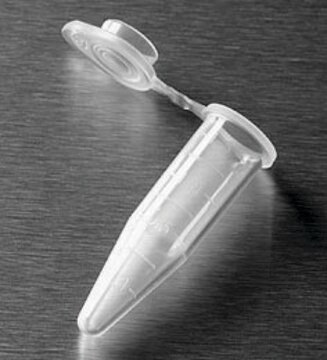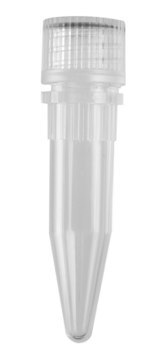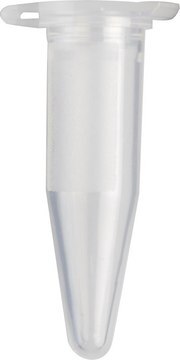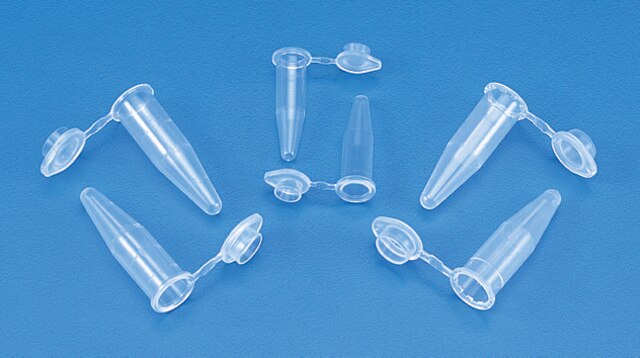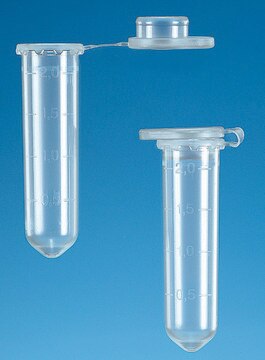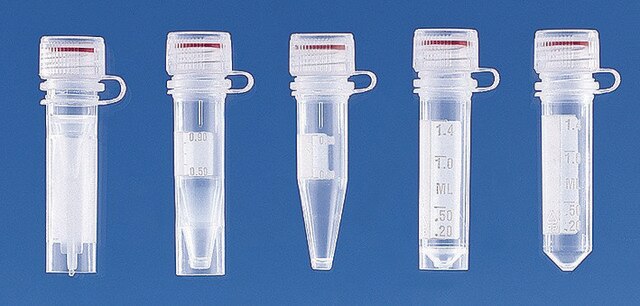CLS430909
Corning® microcentrifuge tubes with screw cap
1.5 mL microcentrifuge tube, polypropylene, w/ attached screw cap, w/ 0-ring, sterile, natural, 500/cs
Synonym(s):
centrifuge tubes, micrcentrifuge tubes, microfuge tubes, screw cap microcentrifuge tubes
About This Item
Recommended Products
material
conical bottom tube
natural polypropylene tube
screw top cap
description
O-ring (black silicone, rubber O-ring in cap)
sterility
sterile
feature
self-standing: no conical bottom
packaging
pack of 50
case of 500
manufacturer/tradename
Corning 430909
parameter
20000 × g max. RCF
cap diam.
12.7 mm
capacity
1.5 mL
tube O.D.
10.7 mm
color
natural
fitting
cap (screw cap)
Looking for similar products? Visit Product Comparison Guide
Related Categories
General description
- 1.5 mL polypropylene microcentrifuge tubes feature screw caps that provide a tight secure seal
- Attached cap with silicone O-ring
- Withstands a maximum RCF of 20,000xg
- Sterile
- Maximum RCF is 20,000
- No marking spot
Legal Information
Certificates of Analysis (COA)
Search for Certificates of Analysis (COA) by entering the products Lot/Batch Number. Lot and Batch Numbers can be found on a product’s label following the words ‘Lot’ or ‘Batch’.
Already Own This Product?
Find documentation for the products that you have recently purchased in the Document Library.
Customers Also Viewed
Protocols
The most common application for qPCR is the measurement of a gene transcript or copy number quantity relative to one or more reference genes using probe detection.
A protocol that can be used as a basic template for qPCR incorporating a detection probe that is specific to a single target. In these reactions, primers and probe are included at a final concentration of 200 nM and are run using LuminoCt® ReadyMix™.
A protocol that can be used as a basic template for qPCR incorporating up to four detection probes. In these reactions, primers and probe are included at a final concentration of 200 nM and are run using LuminoCt ReadyMix.
Primer Concentration Optimization Protocol is an approach to create a matrix of reactions. This is used to test a range of concentrations for each primer against different concentrations of the partner primer.
Our team of scientists has experience in all areas of research including Life Science, Material Science, Chemical Synthesis, Chromatography, Analytical and many others.
Contact Technical Service